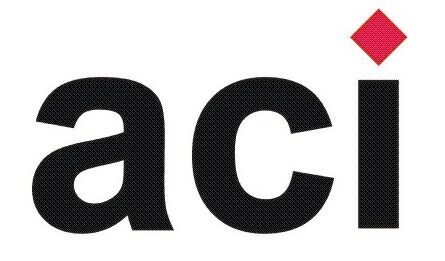The Mini Tracks at ECIE
- Entrepreneurship Education and Learning
- Twin Green and Digital Innovation
- The Role and Impact of Physical and Virtual Incubators and Accelerator Programs on Early-Stage Startups
- Management and Enterprise Development
- Artificial Intelligence Supported Business Models for Entrepreneurial Operations
Entrepreneurship Education and Learning




Mini Track Chairs: Dr. Alexandros Kakouris, Prof Nikolaos Apostolopoulos , Prof Andreas Walmsley and Dr Birgitte Wraae
This mini track will focus on entrepreneurship education, a field of significant growth in entrepreneurship research. The track seeks to draw upon global perspectives for entrepreneurship education, in particular considering the interdisciplinary nature this education provides. After an initial period of fostering the entrepreneurial mindset, entrepreneurship education is now able to widen this focus to include research on innovative teaching methodologies, the implementation of such strategies as well as the outcomes and coherent assessment techniques associated with such strategies. Entrepreneurship education can be provided in a wide range of scenarios from formal academic settings to informal events; typical classrooms to incubators, technology parks and summer academies and more. At the same time, a large variety in content and methods is observed without a unanimous teaching model. Moreover, recent trends show the importance of linking entrepreneurship education with sustainable development and social challenges. This mini-track aims to bring academics and practitioners from different entrepreneurship education settings in a common discourse regarding the pedagogy of entrepreneurial education and the observed learning outcomes.
Suggested topics include but are not limited to:
- Innovative teaching methods in entrepreneurship education
- Entrepreneurial pedagogies in connection with learning
- Informal versus formal entrepreneurial teaching
- Entrepreneurial learning environments
- Entrepreneurship education, sustainable development and social challenges
- Mapping the impact of entrepreneurship education
- Perspectives of educational policies for entrepreneurship
Twin Green and Digital Innovation


Mini Track Chairs: Prof. Dr. Augustinus van der Krogt1 and Antonia Hoffmann2, MSc
1Haarlem University of Applied Sciences, Heidelberg, Germany,
2Technische Universität München, Germany
Green and Digital Innovation are key elements to enhance the competitiveness and the transformation of business towards a circular economy. The Twin Green and Digital Innovation was launched in 2022 by the European Commission as a key element of the Green Deal and the long-term strategy for SMEs and will become very urgent for European companies in 2024 as they will need to comply with the reporting standards set out by the EC Corporate Sustainability Reporting Directive.
While larger companies are investing in Green and Digital innovation, SMEs are lagging behind, affecting their capability to comply with longer term customer demands and government reporting regulations.
Despite the importance of the topic for the competitiveness of European companies, there are some important research gaps. There is limited evidence on the actual adoption levels of Twin innovation. There is a lack of understanding of the longer term costs and benefits and how to secure effective organisational embedding of Twin innovation. In addition, there is a lack of detailed consideration of the extent to which twin innovations help SMEs to carry out a transformation to a circular economy. So far, it is only known that digital innovations can help efficiently use resources, but less about how exactly this can work in SMEs. Suggested topics include but are not limited to:
- Definition of sector-based Twin green and digital innovations
- Adoption levels & challenges of Twin innovation by both SMEs and by large companies
- Business opportunities of Twin innovation
- Economic costs and benefits of Twin innovation
- Organisational embedding of Twin innovation
- The role of Twin innovation for a circular economy
The Role and Impact of Physical and Virtual Incubators and Accelerator Programs on Early-Stage Startups



Mini Track Chairs: Marco Lamas, Carlos Miguel Oliveira, ISLA – Polytechnic Institute of Management and Technology, Portugal and Slava Baranovskiy, Eligent Club, UK
In recent years, the significance of incubators and accelerators in research has surged, drawing attention to their benefits for early-stage startups. This Mini-track is designed to delve into their pivotal role and impact, fostering a forum for debate and the exchange of insights from both research and hands-on experiences.
Focused on best practices and methodologies for promoting early-stage startups forward, this Mini-track includes a variety of pivotal themes, interculturality, entrepreneurial education, innovative business model cultivation, expansive networking strategies, funding, and entrepreneurial ecosystems. The overarching objective is to offer pragmatic solutions that directly address the multifaceted challenges confronting entrepreneurs and early-stage startups at the outset of their journeys.
This initiative holds relevance for a diverse audience of individuals, including scholars, researchers, educators, policymakers, entrepreneurs, startup pioneers, and anyone engaged in the entrepreneurial ecosystem.
Suggested topics include but are not limited to:
- Incubators and accelerators challenges
- Business Model Innovation
- Co-Creation Support Programs
- Interculturality
- Online Support Programs
- Startup Ecosystems
- University Support Programs
Management and Enterprise Development


Mini Track Chairs: Matti Muhos and Martti Saarela, University of Oulu, Finland
During the past decades, literature focused on management and enterprise development has evolved rapidly continuously providing new aspects. This stream of literature has enabled academics, practitioners, and policymakers to contribute, to disseminate knowledge, and to learn from each other’s work, and build on cutting edge thinking.
This mini-track is focused on business development strategies and policies as well as management processes in different contextual settings. It provides a venue for authors interested in theoretical research, evidence-based case studies and practical applications seeking to explore best practice and investigate strategies for growth management and development in SMEs. The track welcomes multi-disciplinary contributions and both conceptual and practical insights and innovative ideas are welcome.
By participating this mini-track you have an opportunity contribute a joint effort towards opening the diversity and special characteristics of management and enterprise development on individual, company, and contextual levels. We want to provide an outlet whereby management and enterprise development research can shape itself and results can be shared across institutions, governments, researchers and students, as well as industries.
Suggested topics include but are not limited to:
- Management processes and practices
- Enterprise development
- Development strategies
- New venture creation
- Startup management and scaling
- SME management
- Management of micro-sized business
- Growth management and processes
- Management of international growth and development
Artificial Intelligence Supported Business Models for Entrepreneurial Operations
 Mini Track Chair: Dr. Nasser Abouzakhar – Director of Anzar Property Investors Limited, UK
Mini Track Chair: Dr. Nasser Abouzakhar – Director of Anzar Property Investors Limited, UK
Artificial Intelligence (AI) is a collection of algorithms, tools and solution models that offer entrepreneurs a platform for managing, marketing, and systemising their SMEs and business operations. Recently, AI opened new venues for smart activities and cost-effective solutions, saving time and money for start-ups and established enterprises. Advanced AI tools like chatbot and chatGPT use high-efficiency algorithms such as machine learning to assess markets, filter unqualified clients/applicants, evaluate product and service prices, and reduce maintenance costs. AI has radically disturbed many industries and sectors, offering opportunities to and allowing entrepreneurs to innovate and develop smart solutions in a competitive market. However, this disruption presents new challenges for entrepreneurs in dealing with AI technologies and establishing their ‘smart’ businesses.
Investing in AI requires proper planning and understanding of the risks and challenges of applying new technologies and tools. Therefore, entrepreneurs must acquire the necessary skills and build competent teams of experts to support them in maximising their returns and minimising risks. Recent advances in AI and entrepreneurship include planning and financing, analysing markets, and managing business processes and systems. This mini-Track aims to bring together researchers and industrials interested in the entrepreneurial aspects of applying AI solutions/tools. It is expected to attract practitioners, academics, and professionals and to stimulate interesting discussions about the latest developments in AI and entrepreneurial operations.
Suggested topics include but are not limited to:
- Apply AI tools and applications like chatbots and chatGPT in marketing, finance, security, the real estate sector, education, healthcare, etc.
- The role of AI in production and service sectors
- Entrepreneurial mindset and characteristics of innovative entrepreneurs
- Risks and challenges facing entrepreneurs looking forward to applying AI to their SME operations
- AI techniques and systems entrepreneurs should be familiar with
- Managing business processes and systems using AI tools
- Predictive Analytics and Big data tools for AI-supported businesses

